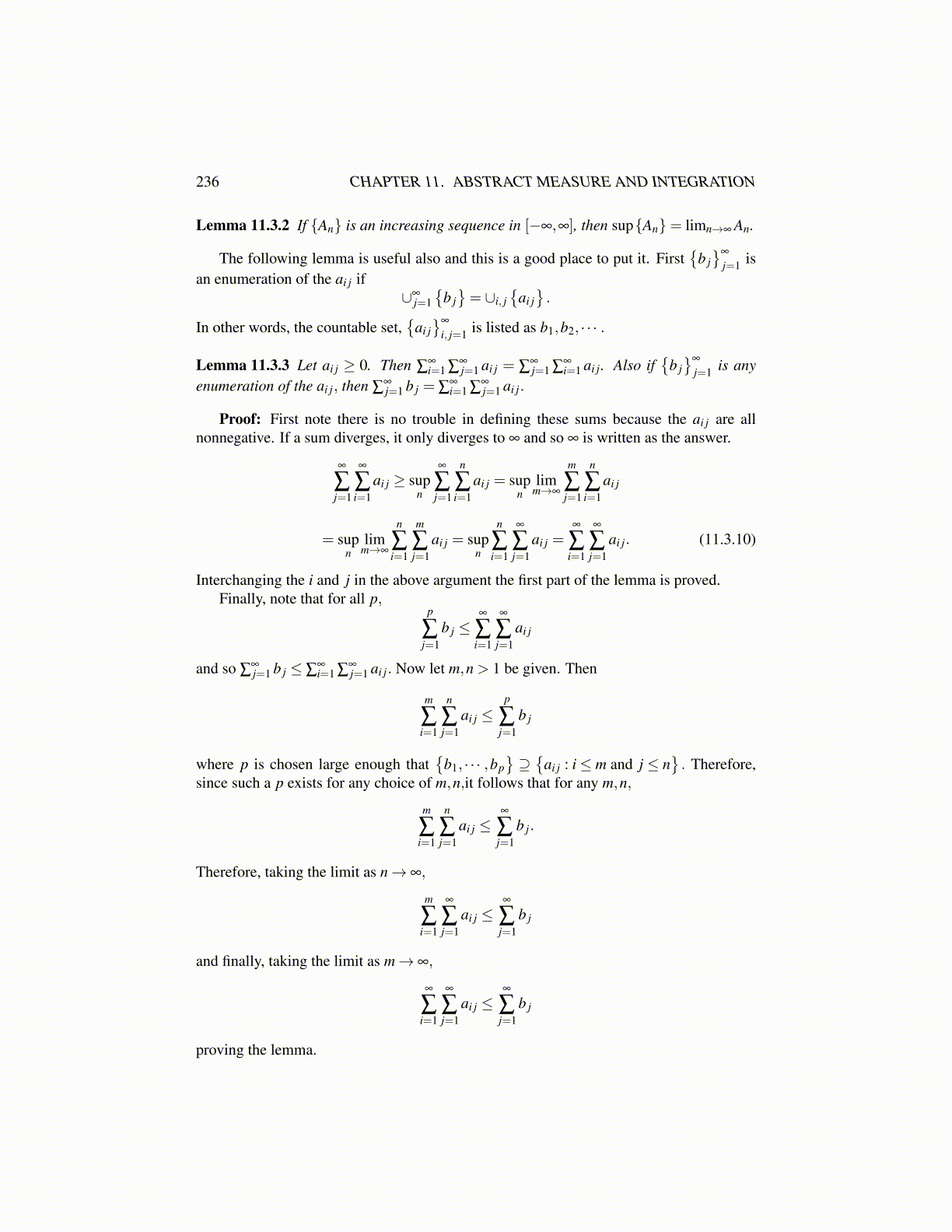
236 CHAPTER 11. ABSTRACT MEASURE AND INTEGRATION
Lemma 11.3.2 If {An} is an increasing sequence in [−∞,∞], then sup{An}= limn→∞ An.
The following lemma is useful also and this is a good place to put it. First{
b j}∞
j=1 isan enumeration of the ai j if
∪∞j=1{
b j}= ∪i, j
{ai j}.
In other words, the countable set,{
ai j}∞
i, j=1 is listed as b1,b2, · · · .
Lemma 11.3.3 Let ai j ≥ 0. Then ∑∞i=1 ∑
∞j=1 ai j = ∑
∞j=1 ∑
∞i=1 ai j. Also if
{b j}∞
j=1 is anyenumeration of the ai j, then ∑
∞j=1 b j = ∑
∞i=1 ∑
∞j=1 ai j.
Proof: First note there is no trouble in defining these sums because the ai j are allnonnegative. If a sum diverges, it only diverges to ∞ and so ∞ is written as the answer.
∞
∑j=1
∞
∑i=1
ai j ≥ supn
∞
∑j=1
n
∑i=1
ai j = supn
limm→∞
m
∑j=1
n
∑i=1
ai j
= supn
limm→∞
n
∑i=1
m
∑j=1
ai j = supn
n
∑i=1
∞
∑j=1
ai j =∞
∑i=1
∞
∑j=1
ai j. (11.3.10)
Interchanging the i and j in the above argument the first part of the lemma is proved.Finally, note that for all p,
p
∑j=1
b j ≤∞
∑i=1
∞
∑j=1
ai j
and so ∑∞j=1 b j ≤ ∑
∞i=1 ∑
∞j=1 ai j. Now let m,n > 1 be given. Then
m
∑i=1
n
∑j=1
ai j ≤p
∑j=1
b j
where p is chosen large enough that{
b1, · · · ,bp}⊇{
ai j : i≤ m and j ≤ n}. Therefore,
since such a p exists for any choice of m,n,it follows that for any m,n,
m
∑i=1
n
∑j=1
ai j ≤∞
∑j=1
b j.
Therefore, taking the limit as n→ ∞,
m
∑i=1
∞
∑j=1
ai j ≤∞
∑j=1
b j
and finally, taking the limit as m→ ∞,
∞
∑i=1
∞
∑j=1
ai j ≤∞
∑j=1
b j
proving the lemma.